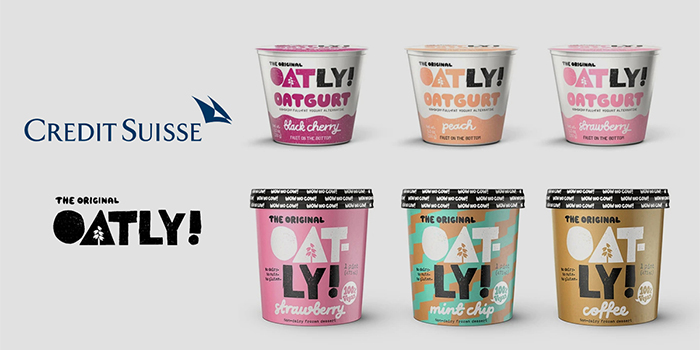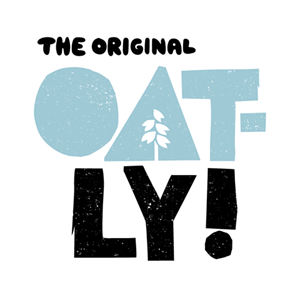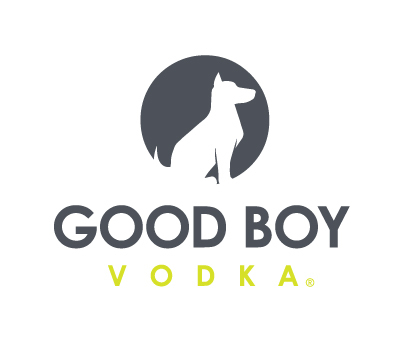Analysts See Long Term Growth for Oatly

“Powerful branding, international exposure, and strong Environmental, Social, and Governance (ESG) credentials” are just three of the qualities making Oatly a major player in the plant-based food and beverage space, according to a new equity research report from Credit Suisse.
In the global investment bank’s first analysis of Oatly since the company went public last month. The Swedish oat milk maker debuted on the Nasdaq Stock Market on May 20 at a $10 billion valuation and began trading at $17 per share — the high end of its anticipated public offering. The price per share has since risen over 35%.
As the quiet period on the stock ends, Oatly received a slate of bullish ratings from investment banks and analysts, including Credit Suisse (with a $30 price target and outperform rating), Truist Securities ($35 target and buy rating), Barclays ($34, outperform), Guggenheim Partners ($32, buy) and Jeffries ($34, buy).
However, other firms were more cautious, including a neutral rating from JPMorgan and an equal-weight rating from Morgan Stanley.
According to Credit Suisse, which tucked Oatly into its portfolio of Wellness-focused research, the brand has benefitted from macro trends supporting the rise of plant-based milks and food products while also facing a large global market opportunity as dairy alternatives are expected to reach $28 billion worldwide by 2025 at a CAGR of 7%. The growth is driven by the popularity of flexitarian diets, with 42% of consumers now reducing the amount of animal products they consume.
In addition to plant-based bonafides, the brand is also expected to benefit from growing demand for health and wellness foods and beverages, a sector which will reach roughly $1 trillion in global sales by 2025 at a CAGR of 5%, according to the report.
“Emerging categories require a flag bearer with a strong brand to scale (such as Red Bull in energy drinks and White Claw in hard seltzers),” the report states. “Oat milk is an emerging category. Oatly has built a strong brand and achieved success, despite operating under severe supply constraints.”
Though Oatly has emerged as a mainstream face for oat milk and a leader in plant-based products — including a Super Bowl ad in the U.S. this year — the company still only holds a 2% market share globally. Credit Suisse predicted that the brand is on track to achieve roughly $685 million in sales this year and could surpass $2.7 billion annually by 2024.
Oatly revealed in its F-1 filing last month that sales grew 106% to $421.4 million in 2020. However, net losses increased to $60.4 million, up from $35.6 million in 2019.
Morgan Stanley, in its report, praised Oatly’s strong leadership and suggested a long runway for topline growth. But the firm highlighted risks including increased competitive pressure, pricing pressure caused by “higher private label penetration” and limited profit visibility “with a history of EBITDA losses and a potential slower progression to profitability.”
Morgan Stanley set a base case target price of $29 for the stock with a 67% forecast topline growth CAGR through 2023. The firm noted “large distribution expansion opportunities” in retail and foodservice, noting the brand has a retail ACV of 29% vs. the oat milk category’s 60% ACV.
Credit Suisse notes that Oatly commands a premium price point at an average of $4 per unit — equal to Califia Farms’ almond milks — while relying far less on promotions (less than 20% of Oatly units were sold on promo). However, private label products can average $2 per unit and as the category
The brand’s strategy of focusing on the food service channel, particularly cafes, has helped to seed consumer awareness and generate brand loyalty, Credit Suisse suggested. Morgan Stanley added that Oatly is only in about 32,200 on-premise doors globally, and its Starbucks footprint is still limited to just the U.S. and China.
Oatly’s velocities also showcase its strength, Credit Suisse noted; despite a limited retail footprint the brand sells 60 percent faster than its closest competitors.
“Oatly’s effective marketing campaigns have formed a recognizable brand that differentiates from a crowded set of peers and commands a higher price point with less sold on promotion. We expect this dynamic to persist as growth continues,” Credit Suisse noted.
About 24% of Oatly’s global sales come from the Americas, 13% in Asia and 63% in Europe and elsewhere. Organized by channel, 71% of sales are made in retail, 25% in food service and just 4% ecommerce.
Oat milk as a subcategory of plant-based milks grew 231% in the U.S. in 2020, with about half of that growth coming from category expansion. The other half was derived from brand shifting from existing plant-based milk consumers.
In addition to milks, Oatly has also continued to expand its presence into plant-based foods including frozen desserts, Oatgurts, and most recently a partnership with ice cream brand 16 Handles to produce a non-dairy soft-serve.
Oatly also benefits from its positioning as a sustainable product. Credit Suisse reported that sustainability-marketed products have a 16% market share in the U.S. CPG industry (up from 13% in 2015) while driving 55% of the growth.
However, the company continues to face an issue that has dogged it for years: demand routinely exceeds supply. Oatly recently began operations at a new facility in Utah and is currently building out production in New Jersey that is expected to come online next year, in addition to scaling in Asia and Europe. According to Credit Suisse, by 2024 Oatly will spend an estimated $1.5 billion — largely funded by IPO proceeds — to increase capacity. Localized production will likely generate margin expansion; the report expects Oatly to see 29% gross margin this year, accelerating to 40% by 2024.
Bryan Spillane, an analyst with Bank of America, echoed Credit Suisse suggesting that Oatly “presents a gross margin expansion opportunity with operating leverage accelerating” that will increase as “self-manufacturing and hybrid capacity [come] online over time.”
Morgan Stanley warned that capacity issues could lead Oatly to continue lagging behind already established competitors, including category leader H.P. Hood, maker of Planet Oat, which has achieved a 29% share of the U.S. oat milk market. Meanwhile, Chobani has a 13% share and Califia Farms has an 11% share. The firm said it anticipates capacity to increase from 299M liters in 2020 to 1.4 billion liters by the end of 2023, but delays in expansion could harm the brand.
“While competition is clearly a risk factor going forward, we believe US market share losses have been driven by [Oatly’s] supply chain constraints with the company unable to fulfill retailers’ orders,” Morgan Stanley analysts wrote, noting Oatly’s fill rates are lower than 70%. “What gives us confidence that [Oatly] will be able to regain market share and shelf space as it increases capacity is that its velocities are more than double its key competitors in the category, making a compelling argument for retailers to give more shelf space to Oatly once supply is available.”
Oatly stock was down 4.73% to $27.37 per share at the close of trading today.

















